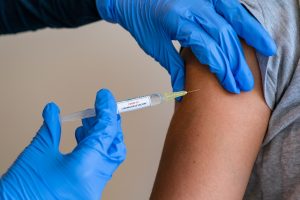
And that is a big deal, because people ending up in hospitals with a COVID infection don’t often fare well. There is data to suggest that 27 percent of hospitalized COVID patients die.
Aside from cutting the risk for hospitalization by nearly 70 percent, vaccines also increase the chances for asymptomatic infection by 94 percent (in people who have had both shots of either Pfizer, Moderna, or AstraZeneca) and cut the potential for long haul symptoms – those lasting more than 28 days – by half.
Researchers used data from the COVID Symptom Study to analyze self-reported symptoms and hospitalization records recorded between December 8, 2020 and July 4 of this year.
Data has also showed that vaccines increase antibodies in people with autoimmune conditions, meaning that they are safe and effective for these people, too. In fact, the immunocompromised are probably the people who need vaccination the most.
The results of the vaccine are overwhelming and so far it is proven to be safe. Sometimes people are of the opinion that this vaccine popped up out of nowhere, with minimal testing, and that it could pose dangers.
What is important to remember is that virologists and other scientists who study viruses are always working to develop protection from potential viruses. Based on a vast knowledge bank, vaccine developers likely had somewhat of a blueprint for the COVID vaccine.
The Delta variant driving the latest wave of COVID infections is hammering unvaccinated individuals. Many public health officials are claiming this wave as “the pandemic of the unvaccinated.”
It’s true that the vaccine does not prevent infection. But it can greatly reduce the likelihood of symptoms, hospitalization and death.
The pandemic is far from over and a vaccine, along with wearing a mask and social distancing, can help you and your loved ones reduce the risk of illness.